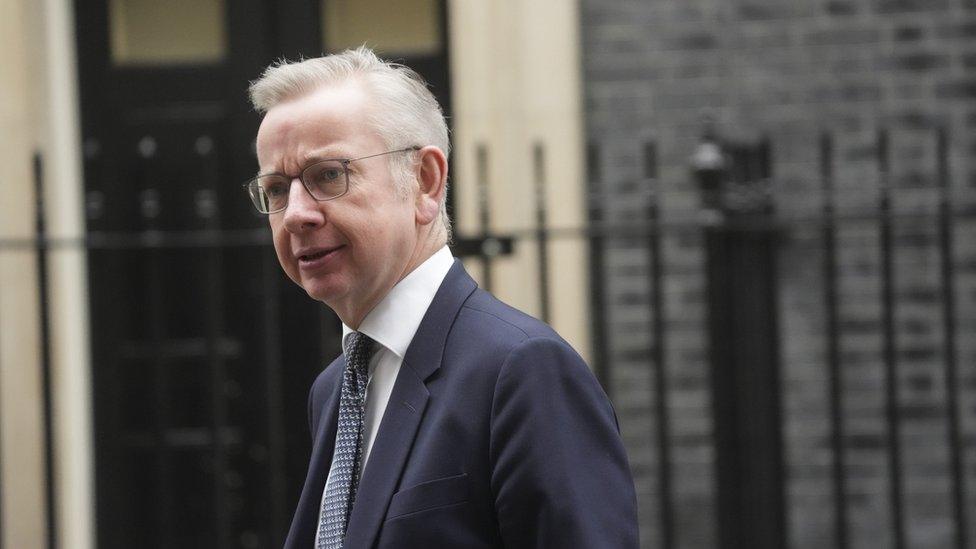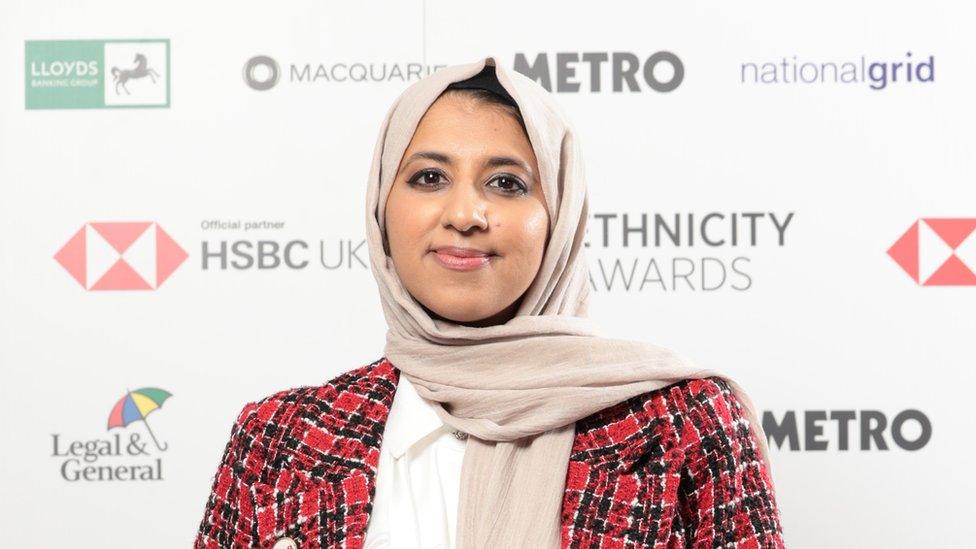Interfaith charity to close after government funding pulled
- Published

Michael Gove said funding the organisation 'posed a reputational risk to the government'
A British charity set up nearly 40 years ago to improve understanding between faith groups has confirmed its closure after the government cut off funding.
The Inter Faith Network (IFN) says its board members met on Thursday and confirmed it was beginning the process to close the charity, though staff would continue working until mid-April.
Last month, Communities Secretary Michael Gove said he was "minded to withdraw" government funding, worth around £150,000, for the IFN after the appointment of Hassan Joudi, a former deputy secretary general of the Muslim Council of Britain (MCB), as a trustee.
The government has made no specific allegations against Mr Joudi other than his association with the MCB - a group the government refuses to engage with.
"The government has held a consistent policy of non-engagement with the Muslim Council of Britain," a spokesperson for the Communities Department told the BBC.
"Last year, an MCB member was appointed to the core governance structure of the Inter Faith Network. As a result, the government has decided to withdraw the offer of new funding."
The issue was raised in the Commons on Thursday, with several MPs urging the government to reconsider their decision.
Communities minister Felicity Buchan said the government would continue supporting other charities that promote interfaith dialogue, but told MPs the MCB member's appointment "poses a reputational risk to government".
Labour's Sir Stephen Timms accused the government of shutting down the main forum for Muslim-Jewish dialogue in the UK at an "extraordinarily stupid" time, referencing that it came a day after the chaos in parliament over the Gaza vote.
The MCB is a broad representative body of British Muslims, with membership from more than 500 mosques, Muslim schools and charities.
In 2009, the Labour government broke ties with the MCB over accusations its leaders supported violence against Israel. However, Labour restored relations with the organisation in 2010.
Though the charity's leadership has since changed, the current Conservative government has refused to engage with it.
"This has come completely out of the blue," says Rev Canon Hilary Barber, co-chair of the IFN.
"To my knowledge there have never been any conditions around funding to do with membership and trustees who sit on the board," he adds.
Mr Barber, who is also vicar of Halifax Minster, says the IFN has taken its responsibilities seriously when it comes to checking the credentials of trustees.
"We're a charitable trust, so the Charity Commission sets out very clear guidelines which the IFN has very carefully followed," he said. "The success of the network for nearly 40 years is in the way it has been run which has been absolutely meticulous."
The IFN says its closure would have an impact on many long-standing projects up and down the country, designed to promote understanding about and between different faith groups and to encourage cooperation.

Zara Mohammed was elected as the MCB's youngest and first female secretary general in 2021
Zara Mohammed, general secretary of the MCB, said: "When there is a real need for cohesion and for bringing people together, to withdraw funding for the Inter Faith Network for the reasons given is a shock.
"We have yet to receive a reason as to why the government doesn't want to engage at this point in time."
While the IFN also raised funds through membership and donations, for more than 20 years it had grown through its partnership with the government. Mr Gove's department had advised that it looked for funds elsewhere.
"The Inter Faith Network cannot rely on continuous taxpayer funding," a Communities Department spokesperson said. "We regularly remind our partners, including the IFN, of the importance of developing sustainable funding arrangements - rather than relying on taxpayers' money, which can never be guaranteed."
Additional reporting by Sara Monetta